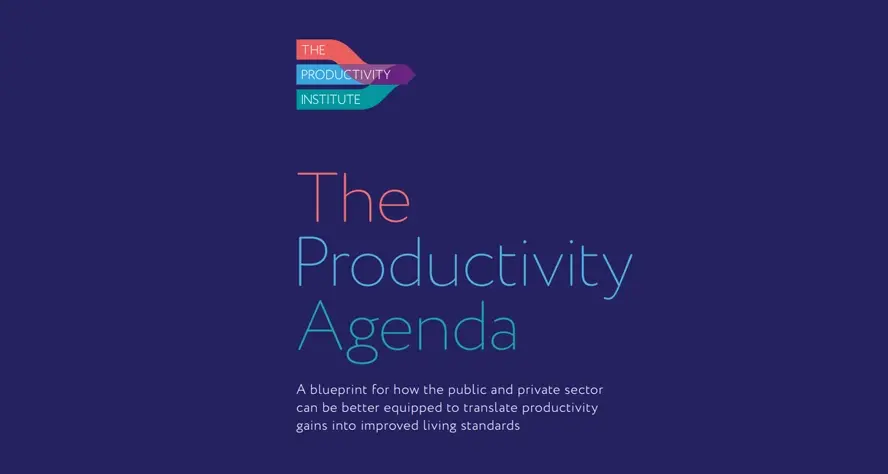Academics from across AMBS have contributed to a major report showcasing key policy areas which the UK needs to focus on to translate productivity gains into improved living standards and well-being.
The Productivity Agenda was launched this week in Westminster as part of National Productivity Week, a week-long awareness campaign to highlight the importance of productivity organised by The Productivity Institute (TPI), which is based at AMBS.
The report concludes by calling for the creation of a new Growth and Productivity Institution which would provide independent expertise and credibility to shape effective, co-ordinated and lasting pro-productivity policy.
Net zero opportunity
Among the AMBS academics who contributed to the report were Jonatan Pinkse, Professor of Strategy, Innovation and Entrepreneurship, who wrote about the green transition and the opportunity of net zero.
He said: “The transition to net zero is an opportunity for businesses to improve productivity, generate new jobs, and create the markets of the future, but this is not guaranteed. While the prospects are promising, many sectors have not yet reached the tipping point where making the transition is the obvious move.
“While the UK was long considered a climate leader, it is now struggling to maintain this position. The rhetoric is in place, but concrete policy actions are lagging in comparison to close competitors in Europe and beyond.”
Regional inequalities
Professor Philip McCann, Chair of Urban and Regional Economics, and Raquel Ortega-Argiles, Chair of Regional Economic Development, wrote about regional productivity inequalities.
Said Professor McCann: “Productivity differences in the UK have been increasing for some 35 years. For instance, London’s productivity is more than one and a half times the UK average, while the regional productivity divergence in the UK is among the most extreme of all OECD countries.”
Added Professor Ortega-Argiles: “The productivity differences between UK cities as well as regions are amongst the highest in the industrialised world. This all goes to suggest that the usual agglomeration processes are not evident in many UK cities.”
Research and development
Professor Richard Jones, Vice-President for Regional Innovation and Civic Engagement at The University of Manchester, also wrote about the role of research and development (R&D) in addressing productivity gaps.
He added: “The policy questions facing the UK concerning the relationship between the UK’s past record in R&D and its current productivity performance go beyond the question of what the total amount of R&D investment should be. In addition to how much R&D a country does, it is also important to consider what kind of R&D is being done, where in the country it happens, and in what kinds of institutions.”
Urgency
Professor Bart van Ark, Managing Director of TPI, added: “The UK’s dismal productivity requires an urgent and comprehensive policy agenda, embracing businesses, public services and infrastructure, workers and communities. In this report we make the powerful case for an independent growth and productivity institution, and set out a blueprint for its design.”
Professor Diane Coyle, Editor of The Productivity Agenda and a Director of TPI, added: “We’ve not been investing enough, not in business, not in infrastructure, not in education, not in research, for a long period now. And if you don’t do the investment you’re not going to get the growth.”
Campaign
The aim of National Productivity Week was to inspire UK policymakers, business leaders, and managers to prioritise productivity as central to the agenda for economic growth and well-being, bridging the divides between different policy perspectives. It is the first UK-wide awareness campaign around productivity since 1963.
The report launch in Westminster also featured a panel discussion among academics, businesses and industry. Panellist Will Hutton, a leading economics author and commentator, said: “This report makes a big contribution to the national conversation around productivity and shows that ideas matter. We need a mindset change and recognition that Britain faces a development challenge as well as a productivity challenge.”
View The Productivity Agenda by clicking on the image below:


